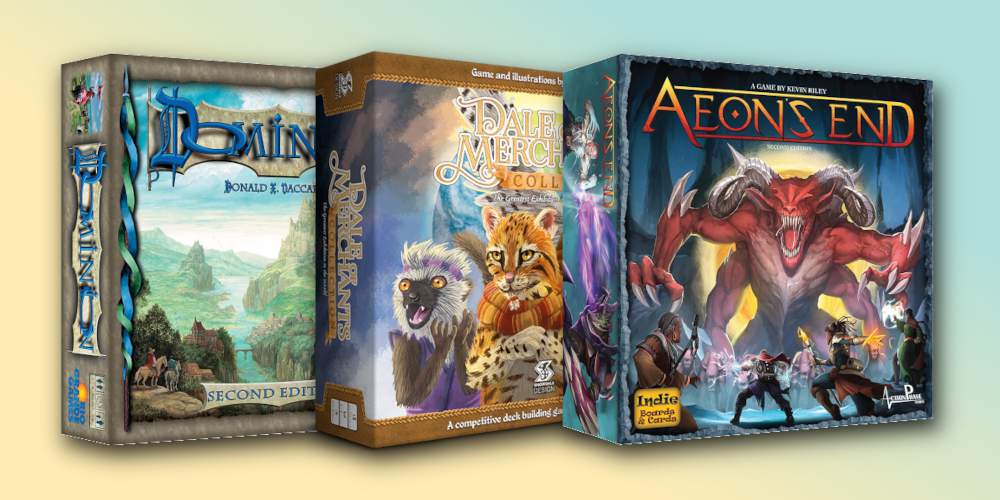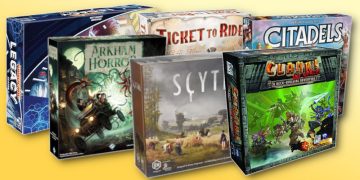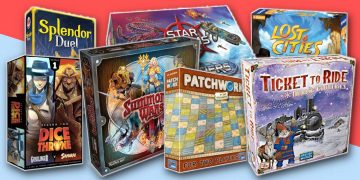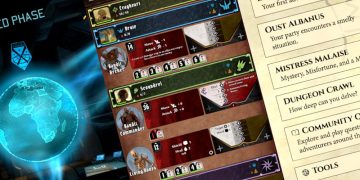Deckbuilding board games and card games have a magical ingredient that separates them from other games: instead of simply playing the hand you're dealt, you influence the kinds of hands you can be dealt.
Unlike deck construction games, which involve crafting a preset deck before the actual game begins, deckbuilding games have you craft your deck while you play. The deck creation isn't just setup; it's the game itself.
This meta-level shift in gameplay brings its own type of thrill to board games and card games. It's similar to riding a train and laying down tracks as you speed ahead—you have to react and adjust in real-time.
And, of course, some deckbuilding games are better at doing what they set out to do than others. Here are our picks for the best deckbuilding board games and card games worth playing.
11. Arctic Scavengers
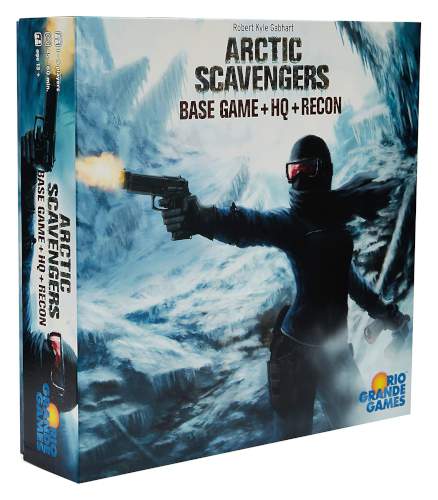
Arctic Scavengers is a relatively simple deckbuilding game that involves gathering resources and fighting over contested resources via skirmishes. Once all contested resources are taken, the game ends.
What's unique about Arctic Scavengers is how skirmishes are resolved: nobody knows what anyone else is bringing to the skirmish except how many cards, so you might bluff and risk more cards to make other players back down and bring fewer cards.
It may not be a perfect game, but it's certainly a lesser-known gem that feels different from other deckbuilding games. The hardest part will be finding a copy as it appears to be out of print.
10. Ascension
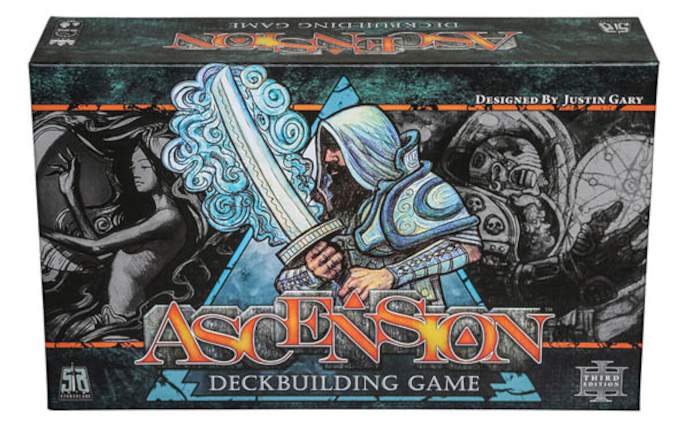
Ascension is a pretty straightforward deckbuilding game in which you start with a small deck of cards and use those cards to obtain better cards.
Two points that set Ascension apart: first, the market supply of available cards is randomized, and second, there are so many expansions that can be mixed together. The end result forces you to have different strategies every time, and the combination possibilities are endless.
You don't need to have every—or any—Ascension expansion to really enjoy the game, but each expansion adds a new twist or mechanic that may or may not make the experience more enjoyable for you.
9. Dominion (Second Edition)
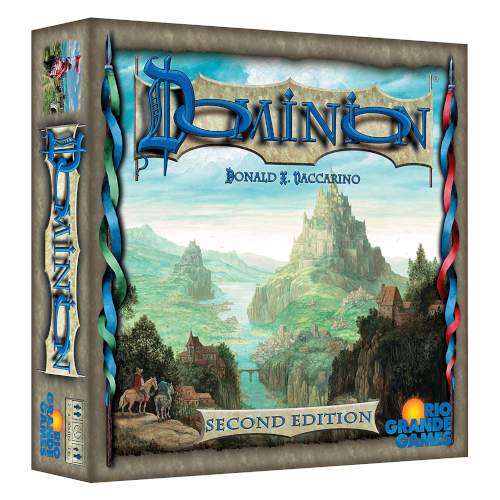
While Dominion may not have been the first game to have a deckbuilding mechanic, it's considered the first deckbuilding card game for being the first to make it its core mechanic. Without Dominion's success, we wouldn't have all the other games on this list.
Dominion plays with a fixed market of cards that's determined before the game begins—simply pull the cards you want to play with from the box. You can mix and match cards from different Dominion expansions, resulting in new strategies and synergies.
The fixed market aspect makes Dominion more of a strategic game than Ascension, but both are worth having in your board game collection.
8. Legendary: A Marvel Deck Building Game
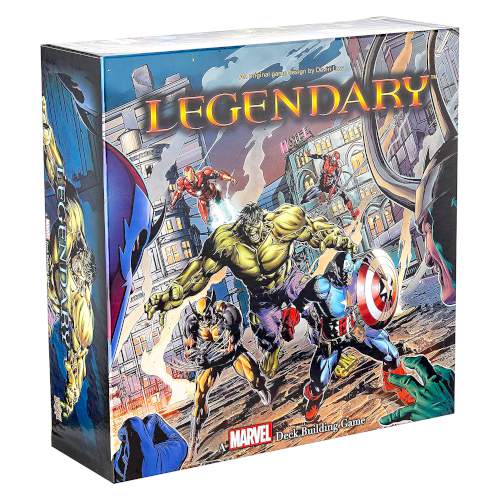
Don't knock Legendary just because it's Marvel-themed. It may seem like an IP cash grab at first glance, but Legendary's gameplay is surprisingly good and deckbuilding fans will love what it offers.
Players build their decks by recruiting heroes and earn points by using those heroes to defeat villains that keep popping up. Villains that aren't defeated in time will escape and cause havoc in some way. The game ends when players defeat the mastermind behind the villains.
As of this writing, Legendary has 30 expansions that add new heroes and villains that can be incorporated with the main game. It's one of the best deckbuilding games for both Marvel fans and non-fans.
7. Star Realms: Frontiers
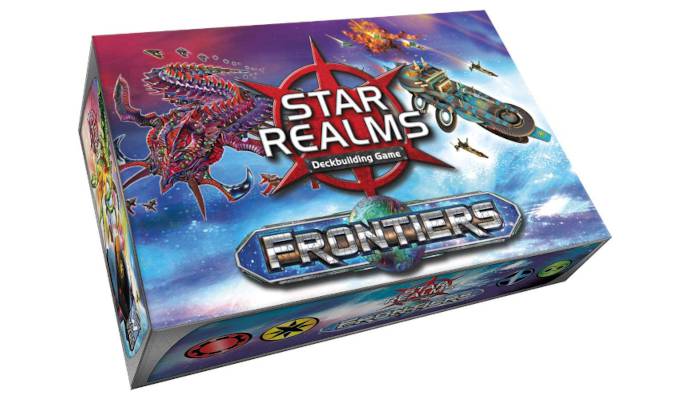
Designed by Robert Dougherty and Darwin Kastle
Supports 1 to 4 players
About 20 to 45 minutes
Star Realms is a fast-paced, head-to-head deckbuilding card game that's best played as a one-versus-one battler.
In Star Realms, players must balance their need to trade (i.e. adding more ships and bases to their deck) with their need to fight (i.e. eliminating the opponent's cards). First to annihilate their opponent wins.
If you want to dive into Star Realms, I highly recommend starting with Star Realms: Frontiers, the standalone set that includes the base game, a solo mode, a cooperative mode, enough starting decks for up to four players, and more cards on top of the base game.
6. Dale of Merchants Collection
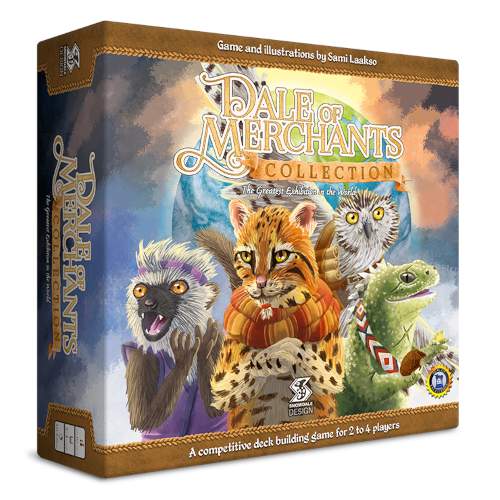
Dale of Merchants Collection is a standalone game in the Dale of Merchants series, and it comes in a large box that acts as a storage module for all of the cards from the other Dale of Merchants games.
This big box comes with new animalfolk decks as well as a new feature called animalfolk characters, who grant special abilities to players and add more depth to the game.
The core gameplay is still the same: build your deck and set aside your best cards to complete your merchant stall.
One of the best things about Dale of Merchants is how it incentivizes you to cull the best cards from your deck. You'll need to play it smart to make sure you can win without hamstringing yourself too much.
5. Tyrants of the Underdark
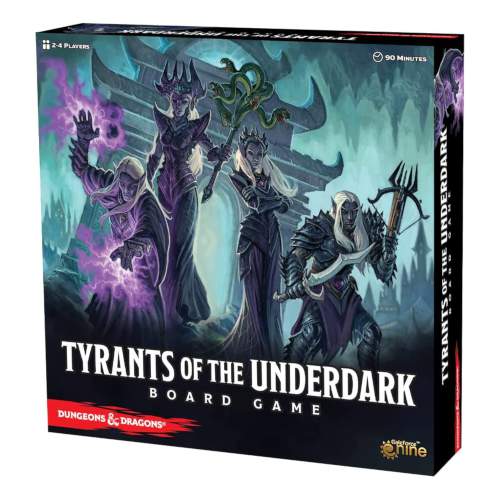
Designed by Peter Lee, Rodney Thompson, and Andrew Veen
Supports 2 to 4 players
About 60 to 120 minutes
Tyrants of the Underdark is an official Dungeons & Dragons-themed card game that combines deckbuilding with territory control. Each player leads a Drow house, which is represented by their deck.
Players must manage both influence (to recruit additional minions) and power (to control the game board). By controlling areas, building up troops, and eliminating enemies, players can earn points—and whoever earns the most, wins.
For those who like deckbuilding games but also want a little more to their games than simply shuffling cards, Tyrants of the Underdark is a solid pick.
4. Clank! Catacombs
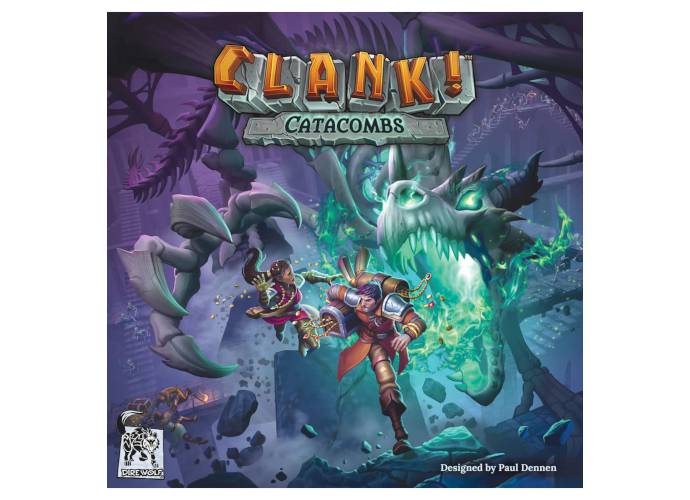
Clank! Catacombs combines deckbuilding with push-your-luck dungeon crawling fun, in which players delve into a Dragon's lair, steal valuable Artifacts, and try to make it out alive before the Dragon kills them.
Everyone starts with the same basic ten-card deck, but players acquire different cards as they venture through the dungeon. By the end, everyone has uniquely divergent decks that change how they play.
Clank! Catacombs introduces a few more gameplay elements on top of the original Clank!, along with a tile-based layout (rather than a preset map board) that results in a unique dungeon every time.
Clank! Catacombs is for two to four players, but it also comes with a free companion mobile app that lets you play a campaign-style solo mode. If you prefer single-player gaming, this mode is actually pretty fun!
3. Aeon's End
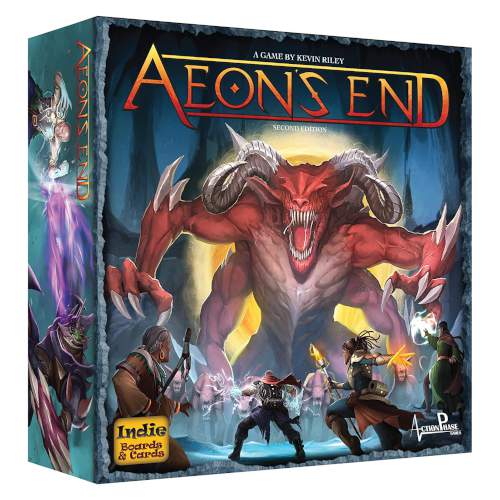
Designed by Jenny Iglesias, Nick Little, and Kevin Riley
Supports 1 to 4 players
About 60 to 90 minutes
Aeon's End stands out as one of the few great deckbuilding games to be played cooperatively. Players must work together to protect Gravehold through the chaos of battle and the invading hordes.
This game mixes in several twists, like not shuffling your discard pile when your deck runs out. It's also great fun for both newbies and veterans, carefully designed to make sure the skill gap isn't a hindrance.
And, for me, the best thing is how every game always ends up treading a very thin line between victory and defeat, which ramps up the tension and keeps it tight to the very end. Highly recommended.
2. Mage Knight (Ultimate Edition)
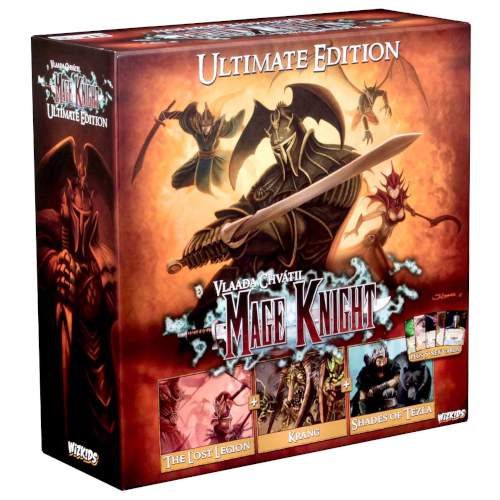
Designed by Vlaada Chvátil, Paul Grogan, and Phil Pettifer
Supports 1 to 4 players
About 60 to 240 minutes
Mage Knight made huge waves when it first came out, and even over a decade later it remains one of the best deckbuilding games ever made.
You play as a Mage Knight who explores, battles, and conquers the world by building up a deck of powerful spells. It's a long game that oozes with flavor, with so much content and variety that you'll have fun playing it over and over, pursuing different tactics each time.
While Mage Knight can be played with up to four players, it's really best played as a solo game—or possibly with one other player. The turns are too long and complex for smooth four-way play.
1. Dune: Imperium
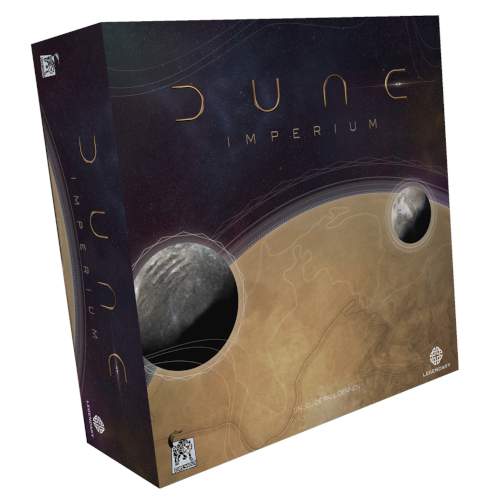
Dune: Imperium is the latest game on this list, and it's the first deckbuilding game in a long time to really make a splash with its arrival. Not only is it fun, it's also heavily flavored and true to the Dune franchise.
Dune: Imperium combines deckbuilding with worker placement. Your deck is simultaneously used to determine where you can go on the game board, which cards you can acquire, and who wins each round's conflict. With multiple facets, building the perfect deck is harder than ever.
